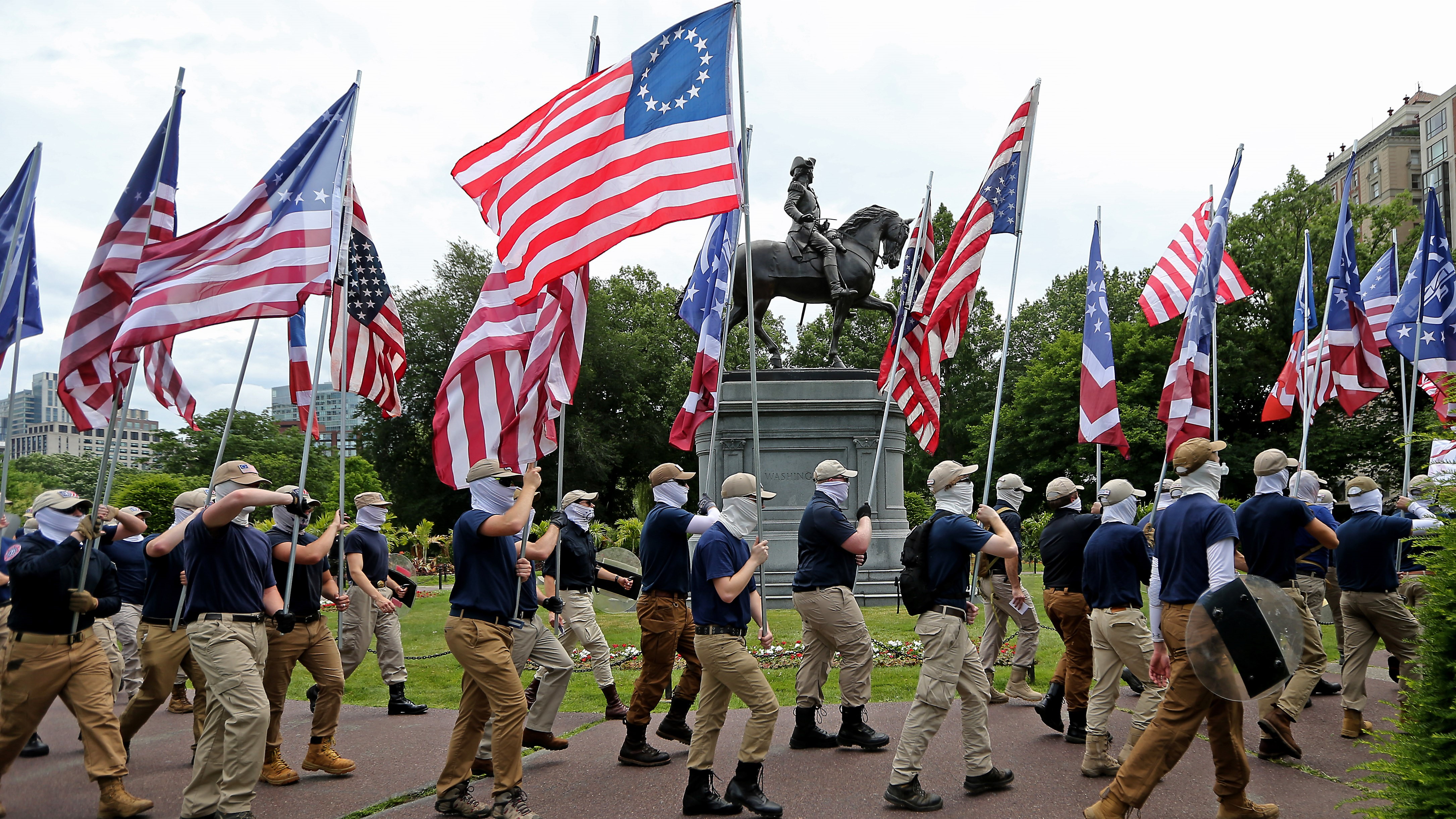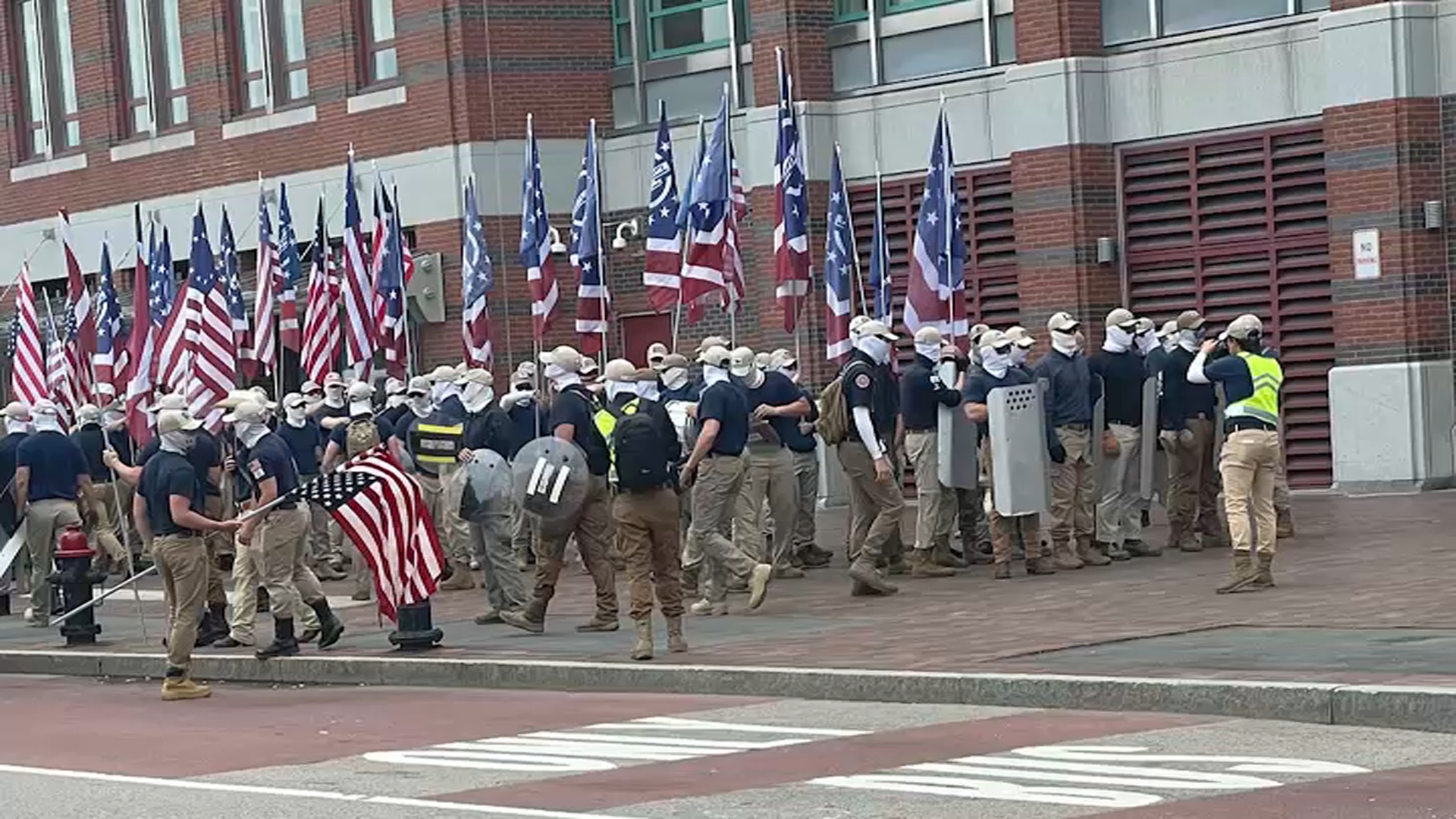Days after dozens of individuals apparently affiliated with the hate group Patriot Front strode through the city with their faces hidden by white coverings, police said they continue to investigate an alleged assault linked to the march but stressed that even some hateful rhetoric is protected as free speech.
Local, state and federal authorities huddled with community leaders Tuesday to discuss the specter of white supremacist organization and action. But they said it's too soon to say if anyone will face charges in connection with Saturday's march.
Police continue to investigate the alleged assault of a Black man, identified by community leaders as activist and artist Charles Murrell, who spoke out about the violence on Monday.
According to a police report, Murrell was walking down the street when he was in the middle of a group of men with masks who shoved and pushed him. He fought back, and then more men went after him, knocking him to the ground. He received stitches to his hand and sustained cuts on his head.
Murrell spoke briefly about the alleged assault Wednesday after meeting with Boston Mayor Michelle Wu with a group of advisers where sought video and other documents associated with the incident.
"This is what every human being that lives in our country deserves," said Murrell, who told reporters he had hand injuries that he was still recovering from.
Boston Police Department Superintendent-in-Chief Greg Long said his officers "did not witness" the alleged assault but are reviewing video recovered.
"There's a lot of detectives assigned to that in an effort to identify those individuals involved in this assault. If we're able to make identifications, if people's faces are visible -- we have mechanisms to try to identify those people," Long said. "Whether they're out of state or local people, there will be charges brought."
Suffolk County District Attorney Kevin Hayden said Tuesday that his office is working closely with the Boston Police Department's civil rights unit on their investigation into the march, which he called "repugnant."
Wu, who said individuals involved in the altercation "need to be prosecuted to the full extent of the law," said the "intentionality" of marchers covering their faces to shield their identities poses a hurdle for law enforcement.
The Southern Poverty Law Center describes Patriot Front as a "white nationalist hate group" that splintered off from Vanguard America following the violent "Unite the Right" rally in Charlottesville, Virginia nearly five years ago.
U.S. Attorney Rachael Rollins said law enforcement has observed Patriot Front "leafleting" in Rhode Island, New Hampshire, Maine and Boston, and she said it's not yet clear how many of Saturday's marchers live in Massachusetts.
Officials said Tuesday that law enforcement surveillance of domestic terrorist groups is limited by the First Amendment. Those boundaries were an item "we spent quite a bit of time talking about in the meeting today," said Joseph Bonavolonta, special agent in charge of the FBI's Boston office.
"Two of the main elements are that (federal law enforcement) cannot track or monitor domestic groups or police ideology," Bonavolonta said. "There have to be certain elements that are met for us to even open up an active investigation, and that is the existence of a potential federal crime (and) the threat or use of force or violence in conjunction with some sort of a social or political agenda."
Limits exist on how federal authorities can respond to a hate group spreading propaganda, too, depending on specifically what the materials entail.
"In many cases, even ignorant, vile or repugnant hate speech can be, at times, covered by the First Amendment," Bonavolonta said. "If it rises to a level where there is a threat or use of force or violence, that is where we can and have gotten involved in and initiated investigations."
Asked if Patriot Front had crossed that threshold, Bonavolonta said the investigation is "active and ongoing."
"As the facts and the evidence come to bear, we'll see where we are with it and what decisions are made at that time," Bonavolonta said.
Both Wu and Rollins urged residents to assist law enforcement by reporting anything they hear about potential hate group activity. Wu said residents should "err on the side of reaching out."
NBC's Asher Klein contributed to this report.



